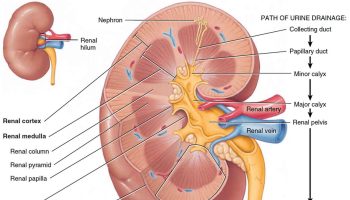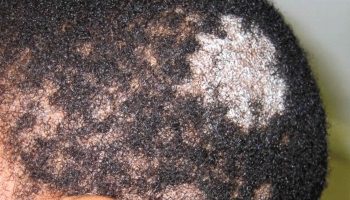Contents
What is nightmare disorder
A nightmare is a disturbing dream associated with negative feelings, such as anxiety or fear that awakens you. Nightmares are common in children, but can happen at any age and occasional nightmares usually are nothing to worry about. Nightmares that occur frequently and keep you from getting restful sleep are considered a sleep disorder. Nightmare disorder is a parasomnia, a category of sleep disorders that involves unwanted events or experiences that occur while you are falling asleep, sleeping or waking up.
If you have nightmare disorder, you may fear going to sleep or worry that each night you will have another nightmare. You may also feel anxious and scared when you wake up from a nightmare and be unable to fall back to sleep. Sleep loss can cause you to have even more intense nightmares. As a result, you may experience daytime sleepiness.
Nightmares are usually coherent visual dreams that seem real and get more disturbing as they unfold and cause you to wake up. These most often happen towards the end of your sleep period. These dreams most often involve imminent physical danger. Nightmares may also focus on other distressing themes and provoke negative emotions such as:
- Anxiety
- Fear
- Terror
- Anger
- Rage
- Embarrassment
- Disgust
- Other negative feelings
In most instances after you wake up, you will be able to clearly remember the details of your nightmare. A disturbing dream that does not wake you up is not considered a nightmare. Instead it is simply a bad dream. It is possible to have more than one nightmare, often with similar themes, during a night of sleep.
Nightmares tend to happen during REM (rapid eye movement) sleep, the last stage in the sleep cycle. About 20-25 percent of your total sleep time is in REM sleep. The REM stage gets longer during each sleep cycle and your final period in REM may last up to an hour. Because of this, nightmares are most likely to occur in the final third of the night. Nightmares that arise from trauma, such as in people with PTSD (post-traumatic stress disorder), may also occur in earlier sleep stages.
Nightmares can happen to anyone, and in most cases the reasons why the nightmares occur are unclear. Stress, anxiety, an irregular sleep routine or being overtired can increase your risk for nightmares.
Some medications such antidepressants, and medications for hypertension or Parkinson’s disease may increase the frequency of nightmares.
Nightmares can happen to anyone, but nightmare disorder is relatively rare. The key difference for nightmare disorder is the inability to get sufficient sleep because of disturbing dreams. An estimated 2-8 percent of people have nightmares that cause sleep problems.
- Children
Nightmares are especially typical in children aged 3-6 years. Up to 50 percent of young children have severe nightmares that cause them to wake up their parents. Nightmares in children tend to peak by ten years of age. After that time, nightmares usually decrease. Some children continue to have nightmares as teens and adults. This may be a lifelong problem for these individuals.
- Adults
An estimated 50-85 percent of adults report having the occasional nightmare. Nightmares tend to become less frequent and intense as you age. Women tend to report nightmares more often than men, but are also more open to discussing their dreams.
Nightmares that cause sleep problems may also be associated with factors such as:
- Another sleep disorder
- A medical condition
- Medication use
- A mental health disorder such as depression, anxiety or post-traumatic stress disorder
- Substance abuse
Having the same nightmare repeatedly over time can also be common after severe stress or a traumatic event. These nightmares are often a way of “reliving” the traumatic event.
Parasomnias similar to nightmares
Other sleep disorders also classified as parasomnias are sometimes mistaken for nightmares:
- Night terrors – These episodes cause you to wake up disoriented from slow-wave sleep in intense fear with your heart racing. Night terrors may cause you to scream, kick, thrash or bolt out of bed. It’s usually difficult to remember what happened, though you may be able to recall brief segments of a terrifying dream. Night terrors tend to occur in the first third of the night.
- REM sleep behavior disorder – A potentially dangerous sleep disorder that causes you to act out vivid dreams as you sleep. The dreams are usually filled with action and may even be violent. Because these actions may result in injury to yourself or your partner, REM sleep behavior disorder is considered a dangerous condition that requires medical attention. This disorder is most common in middle-aged men.
Nightmare disorder causes
Nightmare disorder is referred to by doctors as a parasomnia — a type of sleep disorder that involves undesirable experiences that occur while you’re falling asleep, during sleep or when you’re waking up. Nightmares usually occur during the stage of sleep known as rapid eye movement (REM). The exact cause of nightmares is not known.
Nightmares can be triggered by many factors, including:
- Stress or anxiety. Sometimes the ordinary stresses of daily life, such as a problem at home or school, trigger nightmares. A major change, such as a move or the death of a loved one, can have the same effect. Experiencing anxiety is associated with a greater risk of nightmares.
- Trauma. Nightmares are common after an accident, injury, physical or sexual abuse, or other traumatic event. Nightmares are common in people who have post-traumatic stress disorder (PTSD).
- Sleep deprivation. Changes in your schedule that cause irregular sleeping and waking times or that interrupt or reduce the amount of sleep can increase your risk of having nightmares. Insomnia is associated with an increased risk of nightmares.
- Medications. Some drugs — including certain antidepressants, blood pressure medications, beta blockers, and drugs used to treat Parkinson’s disease or to help stop smoking — can trigger nightmares.
- Substance abuse. Alcohol and recreational drug use or withdrawal can trigger nightmares.
- Other disorders. Depression and other mental health disorders may be linked to nightmares. Nightmares can happen along with some medical conditions, such as heart disease or cancer. Having other sleep disorders that interfere with adequate sleep can be associated with having nightmares.
- Scary books and movies. For some people, reading scary books or watching frightening movies, especially before bed, can be associated with nightmares.
Risk factors for nightmare disorder
Nightmares are more common when family members have a history of nightmares or other sleep parasomnias, such as talking during sleep.
Nightmare disorder complications
Nightmare disorder may cause:
- Excessive daytime sleepiness, which can lead to difficulties at school or work, or problems with everyday tasks, such as driving and concentrating
- Problems with mood, such as depression or anxiety from dreams that continue to bother you
- Resistance to going to bed or to sleep for fear you’ll have another bad dream
- Suicidal thoughts or suicide attempts
Nightmare disorder symptoms
You’re more likely to have a nightmare in the second half of your night. Nightmares may occur rarely or more frequently, even several times a night. Episodes are generally brief, but they cause you to awaken, and returning to sleep can be difficult.
A nightmare may involve these features:
- Your dream seems vivid and real and is very upsetting, often becoming more disturbing as the dream unfolds
- Your dream storyline is usually related to threats to safety or survival, but it can have other disturbing themes
- Your dream awakens you
- You feel scared, anxious, angry, sad or disgusted as a result of your dream
- You feel sweaty or have a pounding heartbeat while in bed
- You can think clearly upon awakening and can recall details of your dream
- Your dream causes distress that keeps you from falling back to sleep easily
Nightmares are only considered a disorder if you experience:
- Frequent occurrences
- Major distress or impairment during the day, such as anxiety or persistent fear, or bedtime anxiety about having another nightmare
- Problems with concentration or memory, or you can’t stop thinking about images from your dreams
- Daytime sleepiness, fatigue or low energy
- Problems functioning at work or school or in social situations
- Behavior problems related to bedtime or fear of the dark
Having a child with nightmare disorder can cause significant sleep disturbance and distress for parents or caregivers.
Nightmare disorder diagnosis
There are no tests routinely done to diagnose nightmare disorder. Nightmares are only considered a disorder if disturbing dreams cause you distress or keep you from getting enough sleep.
If you think you may have nightmare disorder, ask yourself the following questions:
- Do you often wake up from sleep due to a disturbing dream?
- Do these dreams evoke emotions of fear, anger, sadness or disgust?
- Are you alert and able to think clearly as soon as you wake up?
- Are you able to clearly recall details of these dreams?
- Do these dreams often occur during the late portion of your sleep period, such as near morning?
- Do you have difficulty falling back asleep after these dreams?
If you answered yes to these questions, you should talk to your doctor or see a board-certified sleep physician. A sleep specialist is trained to accurately diagnose nightmare disorder and rule any possible underlying causes or complications.
The physician will need to know when you first started having nightmares, how often they occur and the content of the nightmares. Your complete medical history, as well as any past or present drug and medication use will help the physician make a diagnosis. Tell the physician if you have ever had any other sleep disorder, or if any of your family members have sleep problems.
You may be required to keep a sleep diary for two weeks. The sleep diary will help the physician look at your sleep patterns. This data will give the physicians clues about what is causing your problem and how to correct it. In most cases, you will not need any tests for nightmares. If your sleep is severely disturbed, or if the physician suspects there are underlying problems, you may need to have an in-lab sleep study.
To diagnose nightmare disorder, your doctor reviews your medical history and your symptoms. Your evaluation may include:
- Exam. You may have a physical exam to identify any conditions that may be contributing to the nightmares. If your recurrent nightmares indicate underlying anxiety, the doctor may refer you to a mental health professional.
- Symptoms discussion. Nightmare disorder is usually diagnosed based on your description of your experiences. Your doctor may ask about your family history of sleep problems. Your doctor may also ask you or your partner about your sleep behaviors and discuss the possibility of other sleep disorders, if indicated.
- Nocturnal sleep study (polysomnography). If your sleep is severely disturbed, your doctor may recommend an overnight sleep study to help determine if the nightmares are connected to another sleep disorder. Sensors placed on your body will record and monitor your brain waves, the oxygen level in your blood, heart rate and breathing, as well as eye and leg movements while you sleep. You may be videotaped to document your behavior during sleep cycles.
Nightmare disorder treatment
In most cases, treatment for nightmares is not necessary. For patients who have nightmare disorder and experience severe sleep disturbances and daytime sleepiness, treatment from a behavioral sleep medicine specialist is recommended.
Types of Therapy
Medical treatment – If the nightmares are associated with an underlying medical condition, treatment is aimed at the underlying problem.
Stress or anxiety treatment – If a mental health condition, such as stress or anxiety, seems to be contributing to the nightmares, your doctor may suggest stress-reduction techniques, counseling or therapy with a mental health professional.
Imagery rehearsal therapy – Often used with people who have nightmares as a result of PTSD, imagery rehearsal therapy involves changing the ending to your remembered nightmare while awake so that it’s no longer threatening. You then rehearse the new ending in your mind. This approach may reduce the frequency of nightmares.
Counseling – A therapist can help you address some of the underlying causes of your nightmares. This will require processing your thoughts and feelings. More intensive counseling may be needed if the nightmares are caused by a traumatic event.
Systematic desensitization – This approach involves gradual exposure to the disturbing or frightening dream content, with the intention of lessening your emotional response. Systematic desensitization is most useful when recurrent nightmares appear after severe trauma.
Stress management – Managing stress in your life can help you manage your nightmares. This may include relaxation training so that you are able to reduce the anxiety or tension that keeps you from falling asleep, so you can go back to slight after a nightmare.
Medication – Medication is rarely used to treat nightmares. However, medication may be recommended for severe nightmares associated with PTSD.
Home remedies
If nightmares are a problem for you or your child, try these strategies:
- Establish a regular, relaxing routine before bedtime. A consistent bedtime routine is important. Do quiet, calming activities — such as reading books, doing puzzles or soaking in a warm bath — before bed. Meditation, deep breathing or relaxation exercises may help, too. Also, make the bedroom comfortable and quiet for sleep.
- Offer reassurances. If your child is struggling with nightmares, be patient, calm and reassuring. After your child awakens from a nightmare, respond quickly and soothe your child at the bedside. This may prevent future nightmares.
- Talk about the dream. Ask your child to describe the nightmare. What happened? Who was in the dream? What made it scary? Then remind your child that nightmares aren’t real and can’t hurt you.
- Rewrite the ending. Imagine a happy ending for the nightmare. For your child, you may encourage him or her to draw a picture of the nightmare, “talk” to the characters in the nightmare or write about the nightmare in a journal. Sometimes a little creativity can help.
- Put stress in its place. If stress or anxiety is an issue, talk about it. Practice some simple stress-relief activities, such as deep breathing or relaxation. A mental health professional can help, if needed.
- Provide comfort measures. Your child might feel more secure if he or she sleeps with a favorite stuffed animal, blanket or other comfort object. Leave your child’s door open at night so that he or she won’t feel alone. Leave your door open, too, in case your child needs comfort during the night.
- Use a night light. Keep a night light on in your child’s room. If your child wakes up during the night, the light may be reassuring.
Tips for Parents
Most children have nightmares. These tips may help if your child has problems with nightmares:
- Let your child sleep with a special blanket or stuffed animal for security.
- Plug in a dim nightlight so your child’s bedroom feels safe.
- Respond quickly to comfort your child when he or she wakes up from a nightmare.
- Discuss nightmares openly with your child during the day.
- Assure your child that it is normal for children and even adults to have nightmares.
- Talk to your child’s pediatrician if recurring nightmares greatly disturb your child.





